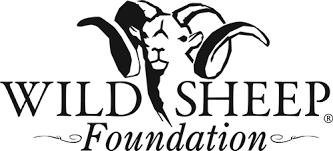
|
The Wild Sheep Foundation (WSF) and its Chapters and Affiliates flash-raised USD $186,505 to fund a translocation of California bighorn sheep from Oregon back to British Columbia to bolster struggling populations in a region where these wild sheep were originally translocated from, way back in 1954.
"Naming this project ‘Coming Home’ was the easy part," said Gray N. Thornton, President and CEO of the Wild Sheep Foundation. "Next was raising the money to pay for it. That was also easy. There is no more passionate, committed, and giving group than wild sheep conservationists. Conservation is all about paying it forward, but sometimes it does pay it backward, and that's special when we all can help make it happen."
California bighorn sheep (CABHS) were translocated from British Columbia (B.C.) to Oregon in November of 1954 to reintroduce and augment existing populations. Twenty sheep were captured near Williams Lake, transported, and released into a 1,000-acre holding facility on Hart Mountain in southcentral Oregon. The sheep thrived and became the source herd for most of the CABHS reintroductions and augmentations in Oregon, including those into the John Day River and Deschutes River canyons.
Currently, there are over 3,700 CABHS across 32 populations in Oregon. The populations in the John Day and Deschutes River areas have done so well that current management requires a harvest of 60 ewes a year from these herds.
Thornton explained, "Other bighorn sheep populations can benefit from a management surplus of sheep in other areas. Today, British Columbia has several populations in decline for a variety of reasons, including disease challenges. Management actions are in place for recovery, but some herds are at low levels and need bolstering."
Between 1954 and 2000, B.C. exported 693 CABHS in 48 separate transplants to 7 western states (OR, WA, ID, NV, UT, CA and ND).
British Columbia has a Translocation Policy and Procedures in place to guide and control translocation management actions. Oregon wildlife officials have proposed to work with B.C. to translocate 100 sheep back to the province to augment one of several herds. These recipient herds will be determined through a formal evaluation.
On behalf of its members, WSF opened the appeal by pledging $50,000. Monies raised will provide funding to support the engagement, consultation, planning, and successful execution of translocations for this project. Those groups contributing include Wild Sheep Society of British Columbia, Midwest Chapter of WSF, Arizonia Desert Bighorn Sheep Society, Alaska WSF, Rocky Mountain Bighorn Society, Texas Bighorn Society, New Mexico WSF, Washington WSF, Idaho WSF, Iowa Foundation for North American Wild Sheep, WSF Alberta, Oregon WSF, Southeastern Chapter of WSF, Montana WSF Fraternity of the Desert Bighorn, Utah WSF, National Bighorn Sheep Center (WY), the Artee Family (MX) and Bryan & Barbara Bartlett (NM).
"This is an opportunity to collectively repopulate struggling California bighorn sheep in B.C., which, as a province, has gifted so many other areas their wild sheep over the years," Thornton concluded. "This is the chance to give back to make such a historical return happen, and none of us on hand were surprised at how quickly the money was raised."
The Wild Sheep Foundation (WSF), based in Bozeman, Mont., was founded in 1977 by sportsmen and other wild sheep conservationists. WSF is the premier advocate for wild sheep, having raised and expended more than $145 million, positively impacting these species through population and habitat enhancements, research and education, and conservation advocacy programs in North America, Europe, and Asia to “Put and Keep Wild Sheep On the Mountain”®. In North America, these and other efforts have increased bighorn sheep populations from historic lows in the 1950s-60s of 25,000 to more than 85,000 today. WSF has a membership of more than 11,000 worldwide. www.wildsheepfoundation.org